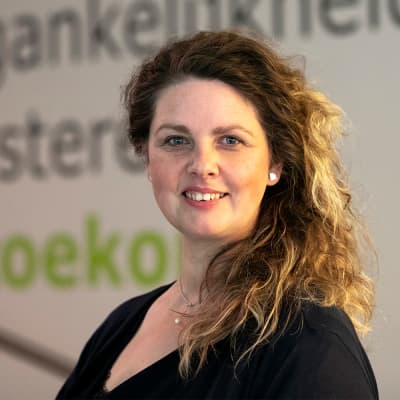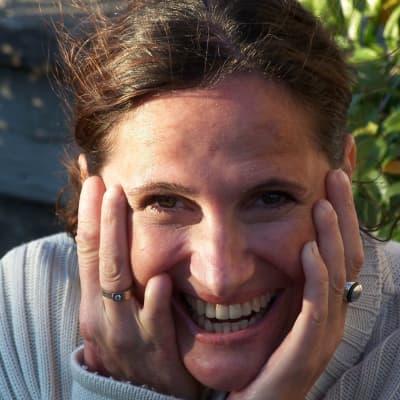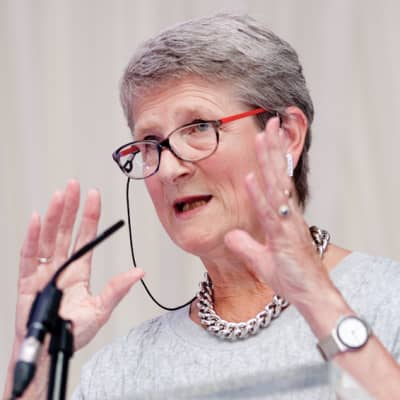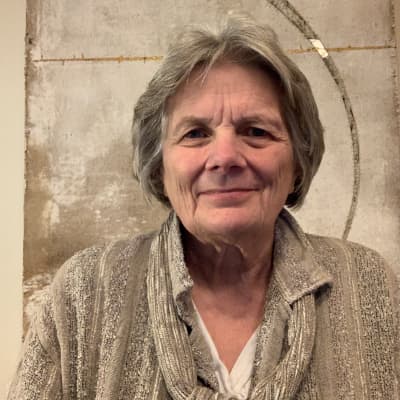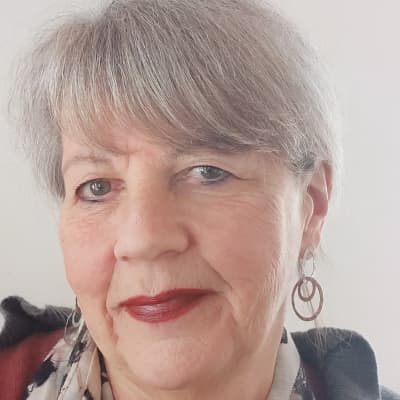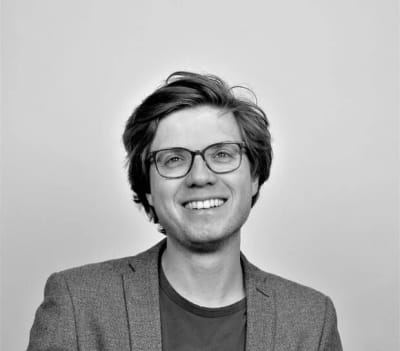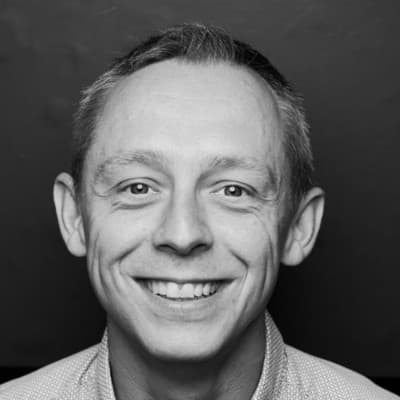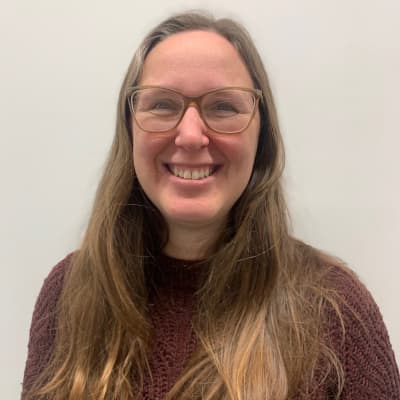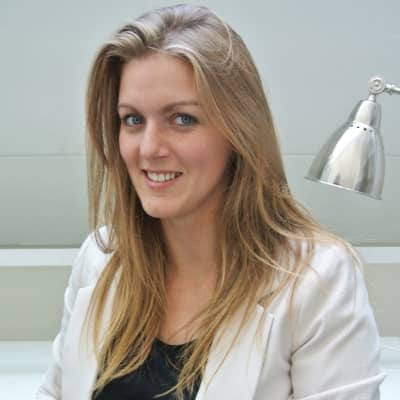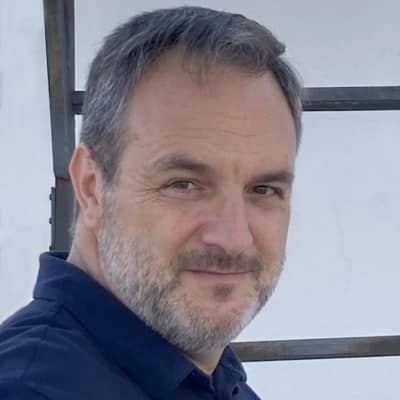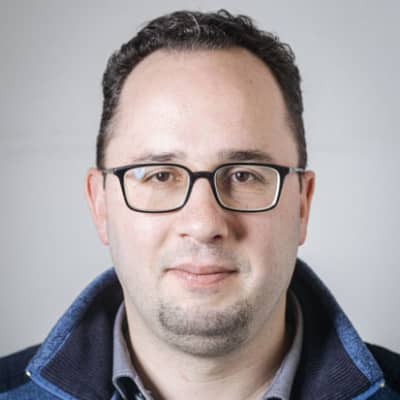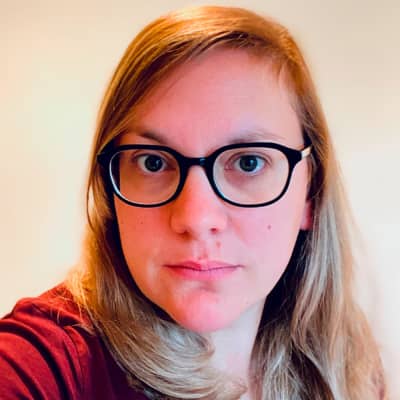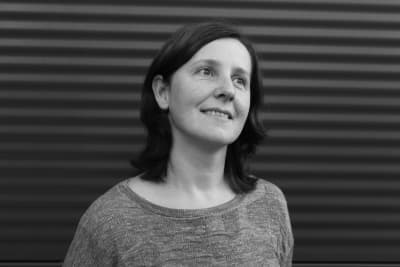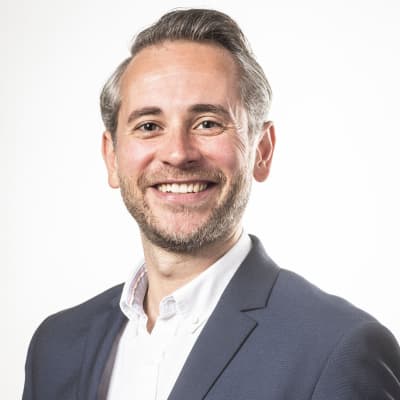Congress “Bruges: Building Bridges between heritage and Inclusion"
Relive the study day of Monday, June 24, 2024 in Bruges. You will find a video of the explanation for each speech.
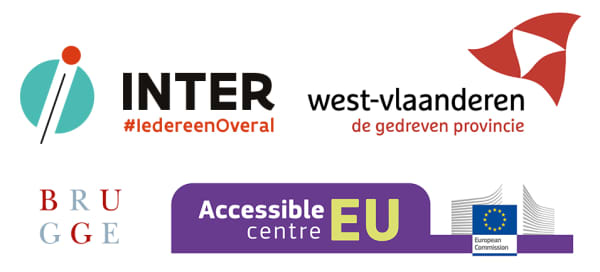
Discover the harmony between heritage and accessibility
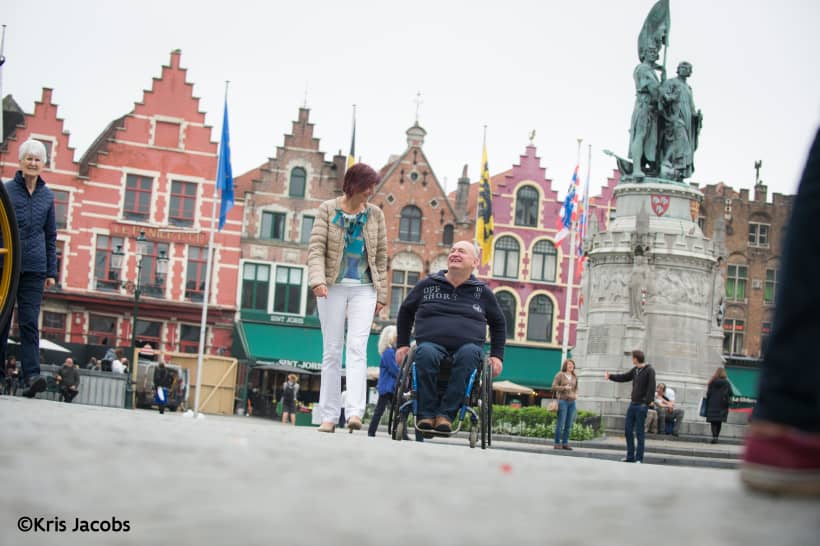
It is not always easy to get the heritage and accessibility sectors to work together. But it is possible!
During this congress you will discover the success factors that contribute to the success of accessible heritage projects. Experts share their insights and clarify them with fascinating cases. With examples from home and abroad, attention to policy, buildings, environments, experience and mobility.
A fascinating programme
- Stap 9u00
Registration and reception
- Stap 9u30
Welcome
Wendy Metten (BE) - general manager of InterWendy Metten is director of Inter - Accessible Flanders. Inter is an independent center of expertise in accessibility and Universal Design and partner of the Flemish government.
Inhoud is aan het laden - Stap 9u45
Road trip through Bruges with experts
Krista Bracke (BE) - expert by experienceKrista was a presenter and producer at Radio 1. In 2009 she was struck by an aggressive bacterial infection and an immune disease. She wrote the book ‘My life on stilts’ about this. Since then, she has traveled around the country speaking about her experiences. In this presentation she shares her experiences from her road trip through Bruges, which she made together with 20 people with different disabilities.
After the presentation, Krista will accompany us all day as a moderator on this study day.
Inhoud is aan het laden - Stap 10u10
International vision on accessibility and heritage
Angela Rolfe (IE) - UIA working group Architecture for allAngela summarizes the international context for inclusion in the historic built environment. She explains the work of the Architecture for All Work Program (AfA WP) of the Union of International Architects (UIA) and the UIA “Friendly and Inclusive Spaces Awards”. With special emphasis on accessibility in heritage buildings and some case studies. Finally, she also elaborates on the role of the ICOMOS “Our Common Dignity” Rights-Based Approaches working group.
Inhoud is aan het laden - Stap 10u30
International standard ISO/DIS 5727 Accessibility of immovable cultural heritage and good accessibility solutions of cultural heritage in Europe
Fionnuala Rogerson (IE) and Monika Klenovec (AT) - UIA working group Architecture for allThis presentation provides insight into the recent developments in the design of the International standard ISO/DIS 5727 “Accessibility of immovable cultural heritage - Principles and methodology for interventions”.
In addition, Fionnuala and Monika show some European examples of good practice in accessibility for cultural heritage. Together with notable examples from the 2014 UIA exhibition “Architecture for All”.
Inhoud is aan het laden - Stap 11u00
Pause
- Stap 11u15
Cultural heritage in Flanders for everyone
Matthias Francken (BE) - Herita vzwHerita wants to make the cultural heritage in Flanders accessible to a wide audience. This includes not only physical accessibility of historic sites and buildings for people with disabilities, but also cultural accessibility, such as promoting inclusion and diversity within the heritage sector and creating programs and activities that appeal to many people.
Herita regularly organizes events, exhibitions, tours and educational programs to involve people of all backgrounds and ages in Flanders’ heritage. Accessibility is a priority, but sometimes its realization is less obvious.
Inhoud is aan het laden - Stap 11u40
Provincial policy on accessibility
Jos Meheus (BE) - Province of West FlandersJos Meheus explains how the province of West Flanders is committed to better accessibility for all residents. He discusses the ambitious objectives and illustrates them with concrete, successful cases such as Provincial Court, Provincial Domain Atlantic Wall Raversyde “Battery Aachen”.
Inhoud is aan het laden - Stap 12u05
Accessibility and heritage policy for the city of Bruges
Els Pieraerts (BE) - city of BrugesIn the Bruges Policy Programme, the city clearly opts for accessibility. Where every resident and visitor has equal and independent access to buildings, public spaces, services and communications.
With the appointment of an accessibility officer in 2020, Bruges showed its ambition regarding accessibility, making it one of the pioneers in Flanders. Bruges also signed Inter’s charter ‘Towards an accessible city’.
Over the past two years, the city council has been working with partners on an accessibility plan that focuses on four main themes: accessible public space, accessible buildings, accessible information and communication, and accessible services and leisure.
Inhoud is aan het laden - Stap 12u30
Lunch
- Stap 13u30
Inclusive design ensures enriching museum visits
Alexandra Verdeil (DE) - Tactile studiosInclusive design emphasizes a new way to build bridges between the public and art, history and culture.
Tactile Studio is an inclusive design agency and workshop with the aim of promoting access to art and culture for all. Educational solutions full of sensory experiences (touch, sound, smell) make use comfortable for everyone, while recognizing the difference in people, their experiences and their skills. With concrete examples of projects carried out with cultural institutions, Tactile Studio shows how inclusive design improves visitor engagement, their interest and their interaction with the content and other visitors.
Inhoud is aan het laden - Stap 13u55
Accessibility of archaeological sites: 2 case studies from Spain
Delfín Jiménez Martín (ES) - Architectural firm “EQAR, Planning, Building and Accessibility”Delfín Jiménez Martín delves deeper into making heritage sites accessible within urban public spaces. He refers to Roman city layout to show how public spaces in ancient times served as centers of urban activity. Compared to the modern use of public spaces, with mainly cultural and tourist visits, an important shift in purpose becomes clear.
Two successful adaptations in Spain, Baelo Claudia (in Cádiz, Andalusia) and Cáparra (in Cáceres, Extremadura), highlight the efforts to make these sites accessible to visitors. With a focus on different types of paving materials to improve accessibility and the visitor experience.
Inhoud is aan het laden - Stap 14u20
Bruges station area
Bart Slabbinck (BE) - city of BrugesAt the beginning of this year, the City of Bruges and the Roads and Traffic Agency presented the design for the R30 Station Environment project, with various infrastructure improvements. It was a close collaboration between various government agencies and partners, including the Department of Mobility and Public Works, Province of West Flanders, Immovable Heritage Agency, De Lijn, Inter and others to realize an integrated design and an inspiring vision. This project showed that teamwork is very important for successful urban development and citizen participation.
Inhoud is aan het laden - Stap 14u45
Addressing heritage issues and focusing on an inclusive experience
Marieke Vanloocke (BE) - InterMarieke talks about the approach to heritage files with special attention to an inclusive experience. She takes a closer look at some good examples, such as the Gruuthuuse Museum in Bruges and the Ensor House in Ostend.
Inhoud is aan het laden - Stap 15u10
Building BMCC in a heritage context
Ramona Nicolaescu (BE) - city of BrugesBMCC is a new building, built in a heritage context. Ramona discusses the preconditions from the start of construction.
Inhoud is aan het laden - Stap 15u35
Closing word
Pieter Marechal (BE) - alderman for Welfare BrugesInhoud is aan het laden - Stap 16u00
End
More than 13 interesting speakers
Wendy Metten
General Manager Inter (BE)Wendy Metten is director of Inter - Accessible Flanders. Inter is an independent center of expertise in accessibility and Universal Design and partner of the Flemish government.
Krista Bracke
Experienced expert and moderator (BE)Krista was a presenter and producer at Radio 1. In 2009 she was struck by an aggressive bacterial infection and an immune disease. She wrote the book ‘My life on stilts’ about this. Since then, she has traveled around the country speaking about her experiences.
Angela Rolfe
Architect and urban planner (IE) - UIA working group Architecture for allAngela Rolfe is an architect and urban planner who has been campaigning for accessibility in the existing and historic built environment at the Office of Public Works in Ireland for many years.
Angela is the regional director of the Union of International Architects (UIA) Architecture For All working group for Western Europe. UIA wants to influence and contribute to the development of socially responsible, accessible and inclusive architecture. Angela is particularly committed to accessibility and inclusion in the built environment.
She is also a board member of the International Council on Monuments and Sites (ICOMOS) in Ireland.
Fionnuala Rogerson
Architect and accessibility consultant (IE) - UIA working group Architecture for allFionnuala is an Irish architect and accessibility consultant with extensive expertise in urban planning, housing and various public buildings.
She advises design teams, companies and government agencies on a wide range of projects: from urban planning and transport infrastructure to educational institutions and health and welfare institutions.
Fionnuala is also a teacher.
She previously led the Architecture for All program in Region I of the Union of International Architects (UIA). And now she advises the Architecture for All program to make architecture more inclusive and accessible.
Monika Klenovec
Architect, structural engineer and lecturer at Vienna University of Technology (AT) - UIA working group Architecture for allMonika Klenovec is an Austrian architect, structural engineer and lecturer at the Faculty of Architecture and Regional Planning of the Technical University of Vienna.
She mainly focuses on Universal Design. Monika has extensive experience with standardization and has worked on accessibility requirements at national, regional and international levels.
Monika is a well-known accessibility consultant, representing the Austrian Consumer Council and representing Austria within ANEC (European Voice of Consumers in Standardization).
She played an important role in drawing up accessibility standards in Austria, but also within CEN and ISO standards, with special attention to inclusive design in the built environment.
Monika’s commitment to accessibility goes beyond education. She advised many projects in the tourism sector, such as the Musiktheater am Volksgarten in Linz.
As a member of UIA WP “Architecture for all”, Monika continues to advocate for inclusive designs worldwide.
Matthias Francken
Government Commissioner for Inter and director of Herita vzw (BE)Matthias Francken is government commissioner for Inter and director of Herita vzw, an organization committed to the preservation and management of heritage in Flanders. He has a background in heritage management and played an important role in promoting the conservation and promotion of cultural heritage in Belgium. As director of Herita, he is responsible for developing and implementing strategies to preserve cultural heritage and make it accessible to the public.
Jos Meheus
Project director and section head at Facilities Service - Province of West Flanders (BE)Jos Meheus is project director and section head at the Facilities Service of the Province of West Flanders. He is the main contact person for accessibility policy within the province. With his expertise, he oversees various projects where heritage and accessibility come together. He is also committed to accessibility in general provincial policy.
Els Pieraerts
Accessibility officer in Bruges (BE)Els Pieraerts has been an accessibility officer at the City of Bruges since 2020. As an accessibility officer, Els Pieraerts works on a more inclusive city where everyone counts. It ensures that buildings, public spaces, services and public domain are accessible to everyone.
With her background as a social educator and experience in equal opportunities for LGBTI+ people and diversity policy, Els now brings her expertise to the strategic cell of the City of Bruges. She ensures that every citizen is taken into account.
Alexandra Verdeil
Inclusion expert and employee at Tactile Studio (DE)Alexandra Verdeil is an inclusion expert and collaborator at Tactile Studio, an innovative inclusive design agency and workshop, with offices in France, Germany and the US.
This team of passionate designers, UX specialists and model makers specializes in inclusive experiences in cultural institutions. After leading the German office for the past seven years, Alexandra has shifted her focus to supporting institutions in understanding and implementing solutions to improve accessibility and create a more welcoming environment. With support throughout the visitor experience, from inclusive signage to accessible content.
Delfín Jiménez Martín
Director of architectural firm “EQAR, Planning, Building and Accessibility” (ES)Delfin is director of the Spanish architectural firm “EQAR, Planning, Building and Accessibility”. He participates in several projects of international standards on accessibility for UNE, ISO and the European Commission.
He has extensive experience as an accessibility consultant at ONCE Foundation and ILUNION. He works with AENOR as an expert in certification audits in the field of accessibility.
He is also a lecturer at the Master of Accessibility course at the University of Jaén and teaches many other courses.
He is also a board member of ASEPAU, the Spanish Association of Professionals in the Field of Universal Accessibility and IAAP, the International Association of Accessibility Professionals.
He is the Spanish expert for AccessibleEU.
Bart Slabbinck
city of Bruges (BE)Bart graduated as an environmental coordinator. He has a passion for systems thinking – making connections. As a generalist, he has worked in various policy areas: nature conservation, heritage conservation, urban development and mobility. And this on the different sides of the table (public, private and NGO).
He has been working for the city of Bruges since 2018.
Marieke Vanloocke
Accessibility Advisor at Inter (BE)Since 2010, Marieke has been an accessibility and universal design advisor at Inter. She has already advised numerous heritage files on accessibility and inclusion.
Ramona Nicolaescu
City architect Bruges (BE)Ramona Nicolaescu is an architect and has worked at the Facilities Management department of the city of Bruges since 2015. She supervised the BMCC project from the very beginning. Making buildings user-friendly and accessible to everyone is the common thread in her career.
Pieter Marechal
Alderman for Welfare in Bruges (BE)Pieter Marechal is alderman for Personnel & Organization, Customer-oriented services and Welfare (seniors, people with disabilities and health) in the City of Bruges.
Location and accessibility
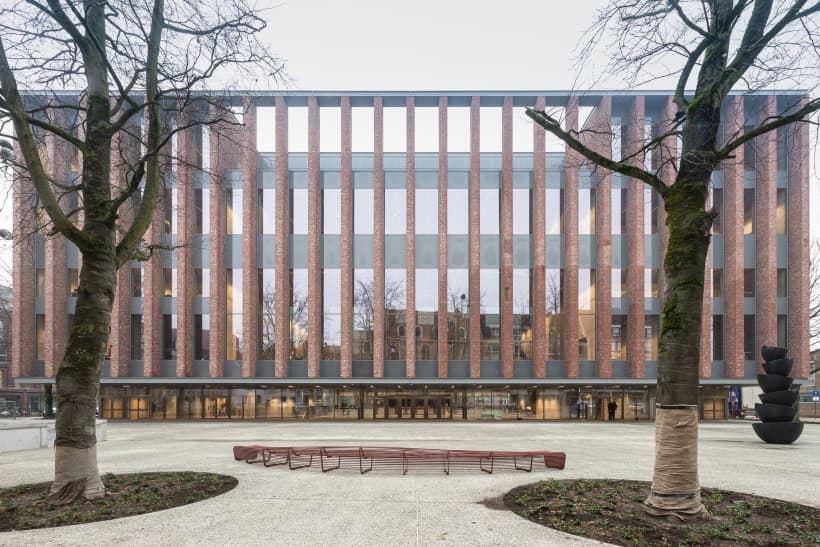
BMCC, Beursplein 1 in Bruges
The auditorium is on the first floor.
In 2023, the BMCC was the first Flemish meeting and conference location to receive the M+ accessibility label from Toerisme Vlaanderen.
By car
There is little parking space at BMCC. Contact info@inter.vlaanderen(opens in your email application) for an adapted parking space. Interparking ‘t Zand (in Dutch)(opens in new window) is within walking distance of the BMCC.
With public transport
The BMCC is a 10-minute walk from the station and within walking and cycling distance of Bruges hotels and tourist attractions.
By bike
A spacious public underground bicycle shed for 220 bicycles is provided under the forecourt at the BMCC.
Accessible event
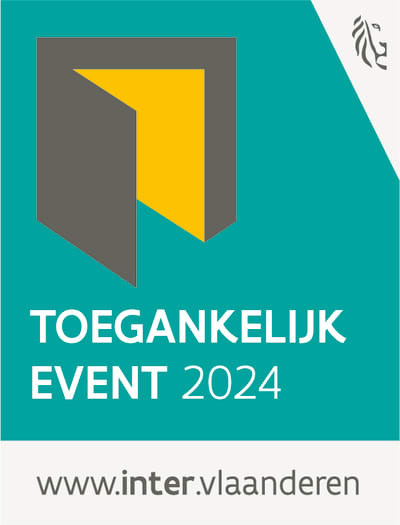
For this congress, AccessibleEU, Inter, Bruges and the province of West Flanders are strongly committed to accessibility.
The location is accessible. There are adapted parking spaces, free seats in the auditorium, Flemish Sign Language and Dutch-English interpreters. The speakers will receive English and Dutch subtitles.
The study day thus achieves the label of accessible event from Inter. More information about the label or about the facilities on this study day via info@inter.vlaanderen(opens in your email application).
